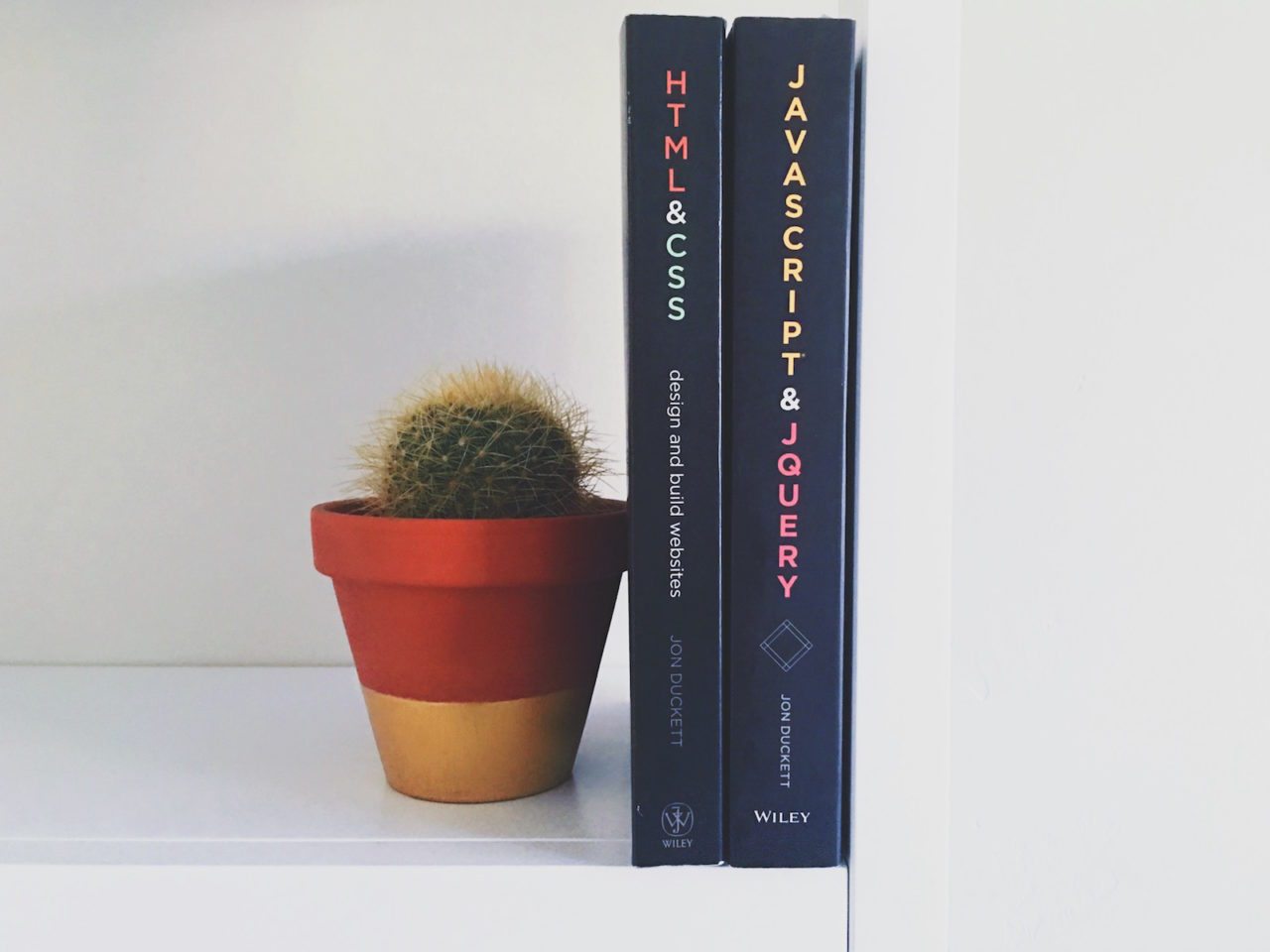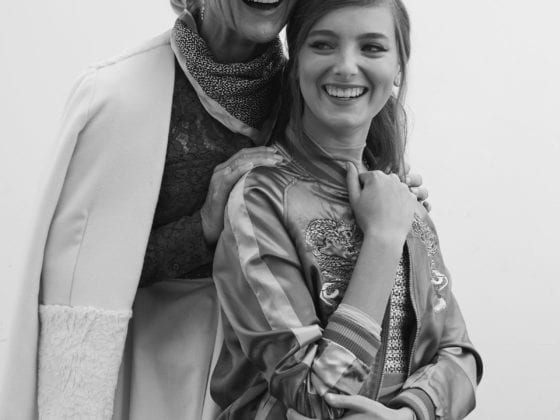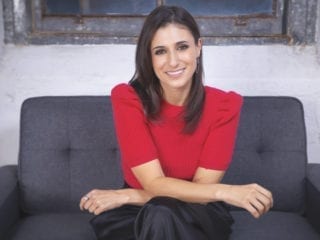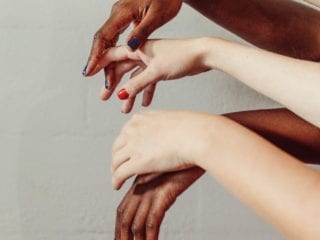Reem* and I became friends on thin ice; only literally, of course. We met at our children’s ice skating lessons, and found ourselves sliding on a little patch of water that had leaked out and froze to a walkway that our toddlers felt was designed specifically for their own treacherous skating lesson.
While introducing ourselves, we managed our overzealous three-year-olds on the makeshift patch; it was backbreaking, stressful work. But Reem was smiling and laughing through it all, and I wanted to be friends with her. She had a easy and warm way about her, and seemed to handle the ice, toddlers and stress with miraculous humor.
Reem has always struck me as a very open-minded and inviting friend. She has taught me about her customs, she’s been honest about her career aspirations and she has been introspective about raising bilingual children in a foreign city. Her perspective is a treasure in this world of polarizing opinions and fear-based political discourse; I hope her kind insights are as refreshing to you as her presence is to me.
Jennifer Gafford: Reem, please tell us a little bit about yourself.
Reem: My name is Reem and I’ve been in the US for almost eight years. We came to the midwest for my husband’s medical studies, and now we have two girls. I studied computer science back home in Syria, but I had to finish my IT (Information Technology) degree here.
Before starting school, I had to learn English first and get my required TOEFL (Test of English as a Foreign Language). Those were the hardest two years! I came to a new country with a different language and different culture, new husband, no friends and no family. I didn’t drive at first and had to get my license. It took six months; meanwhile, I was going crazy at home.
JG: What were English schools like?
Reem: The first thing I did was begin my English classes. These classes did three things for me; they helped me learn English, they gave me lessons in how to assimilate and they gave me something to do with my time.
In these classes, you meet not just Americans, but people from other countries. It is a big group of very different cultures, languages and religions. You learn about people from all over the world. In my writing class, I became very close with women from Mexico, Jordan, Iraq and our American teacher. We visited each other, had dinner out together and became good friends.

JG: Now that you’ve finished your degree (congratulations!) what does the future here look like for you? What are your personal thoughts on balancing a career and family?
Reem: Living in a foreign county means very little family available to help, and this makes it harder to have both a family and career. In America, it seems more normal to have babysitters, but I’m not used to that and I prefer family or close friends to watch my children.
I’m caught between having a career and caring for my children. My husband is a doctor and is also very busy. I know women who can do both. I’m not sure if it’s just me, but I don’t feel like I can. I believe the center of the family is the mother. When she is happy and balanced, all other family members are affected. I want to be happy, and so I need to find a way to keep up my skills while my kids are young and wait to start my career. This is a very hard question for me and I am still figuring it out what this balance will look like.
I believe the center of the family is the mother. When she is happy and balanced, all other family members are affected.
JG: Tell me about your daughters! Are you teaching them Arabic? What’s it like to raise bilingual children?
Reem: The rule is: Arabic only at home. They don’t know how to speak English to me! We have this rule, but now it’s getting out of hand. They have started speaking English to each other, despite my request for Arabic in the home.
The one thing I feel strongly about raising bilingual children is to never feel ashamed or shy of the language in public. For example, when we are outside with other people, I still speak Arabic to them. I’ve gotten looks, but I can’t let them see my embarrassment. My daughters are smart and very sharp; they will know if I am shy or nervous to speak Arabic. I want them to only see pride.
The girls attend Arabic courses; they learn how to read and write. But the best thing I did was take them back to Syria last summer for two months. It was wonderful seeing them chat away! When they came back, my three-year-old had forgotten English! Of course, now she speaks English perfectly and her Arabic has weakened. It’s continuous. Every day, every chance you have, you need to constantly teach the language.
It’s not just about speaking another language; it’s so much more than that. Arabic connects my daughters with their culture, their family back home and it prepares them for the future. Knowing Arabic helps them understand history, religion, it connects you to the larger world.
The first thing they said in English school: “Don’t lose your culture, don’t lose your language!” Many of my American teachers taught me that and teaching Arabic is hard work, but I am thankful my girls are bilingual.
JG: How can we [here in the States] do a better job of welcoming immigrants and foreigners? Do you have any advice for women first coming to the U.S.?
Reem: [For newly arriving women:] It’s so important to learn English. Don’t just sit at home. Here in the midwest, there is a large Arabic-speaking community, so if someone doesn’t want to learn English, they can survive. But I think not learning English could harm you in a way you don’t feel.
The first years are the hardest. I was disconnected from my family in Syria, the culture shock, so much free time for me; it was really hard. The best thing anyone can do is search for something to keep you busy. Volunteer, take English courses, learn to drive if public transportation is not available. Make friends. You won’t have all your family, so you will need friends.
I think the best thing Americans can do to welcome others is not make people feel uncomfortable if they are different than you. If someone is wearing a hijab or speaking a foreign language, don’t give strange looks, but be friendly! It’s simple.
If someone is wearing a hijab or speaking a foreign language, don’t give strange looks, but be friendly! It’s simple.
JG: You’ve told me about your love of Damascus before and I wish readers could see how your face lights up when you talk about this special city.
Reem: Damascus, my favorite city in the world, is a very old city, very crowded, very lovely. They call Damascus the “City of Jasmine.” My favorite part is the ancient city; the very old streets and historic shops. There are merchants and craftsmen whose families have been in the business for generations. Of course there is a modern part with malls, modern shops, and that area is also nice, but I prefer the old city.
I can’t go back to Syria without visiting Damascus. Our original plan was to come to the U.S. for a few years and go back and live in Damascus. Now it is more like a dream, but we still have hope!
JG: Is there anything you would like people to know about your journey and life here in the U.S.?
Reem: Travel is so important. It exposes you to a different part of the world, and changes you. At first it’s very hard to live in a foreign country but now, after eight years, I realize how wonderful it has been for me to do something so hard. I would not be who I am if I had stayed in my home country. I am more open-minded, more accepting of others, I am so much stronger. I’m so different from the Reem who first arrived here.
*Name has been changed to protect privacy.
We never know the stories of those around us until we ask. Who can you make a point to open up with today?
Feature Image via Henrique Macedo











1 comment
This is such an inspirational story, I love reading about other people experiences and even like understanding how their culture is different from mine. Especially the babysitter thing. I never thought about how it must be different in other places as compared to how it is here.